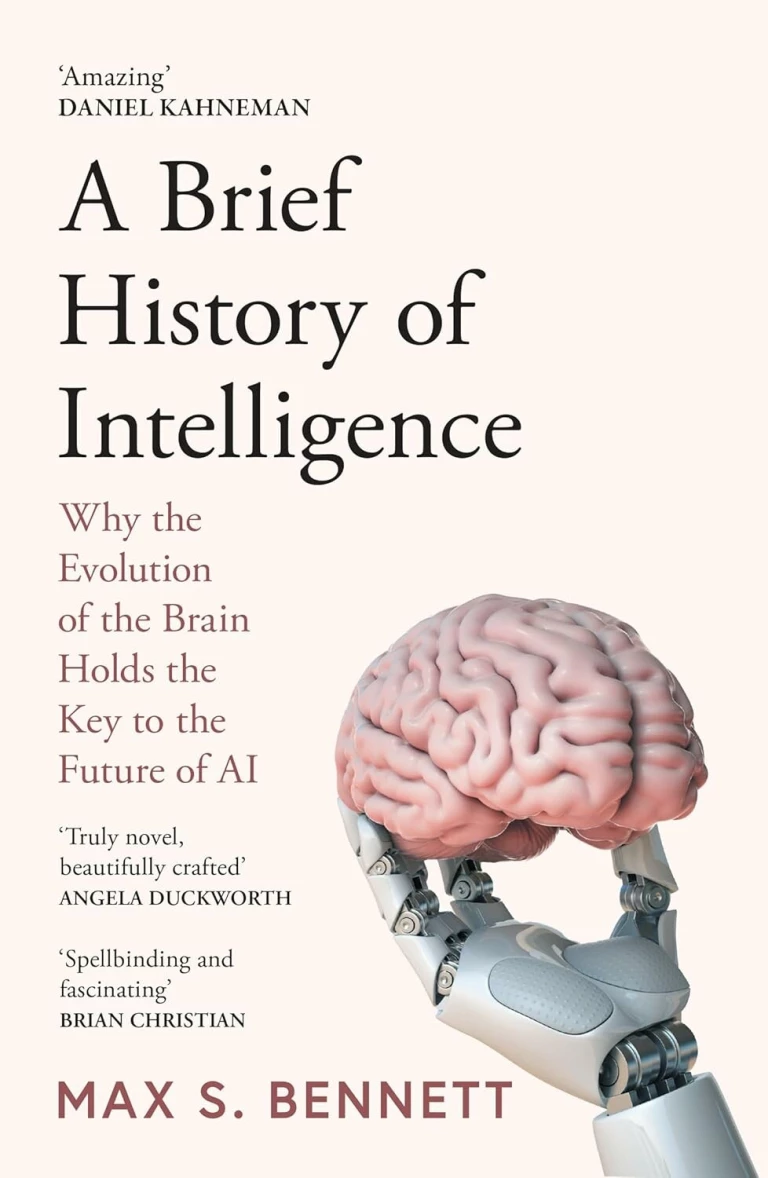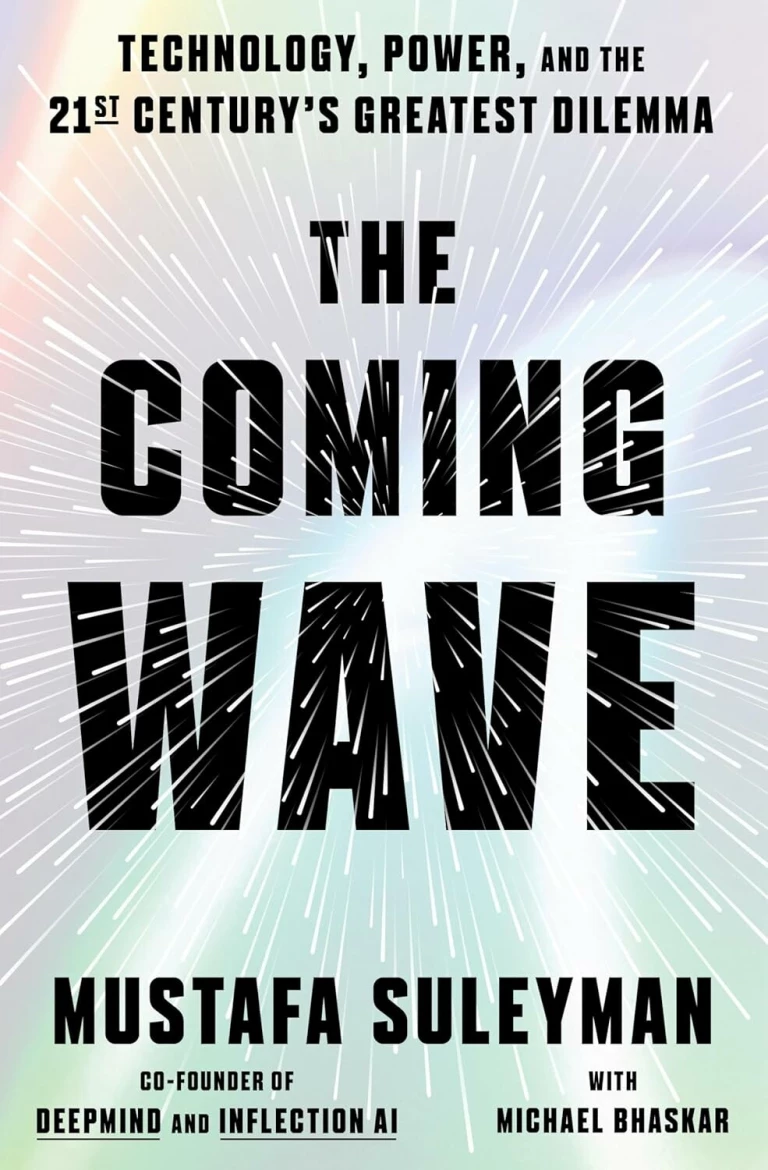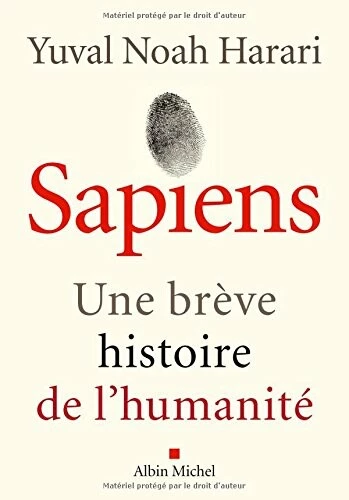Livres recommandés par Reid Hoffman
L'Empereur de toutes les maladies : Une biographie du cancer Siddhartha Mukherjee
La lutte contre le cancer est une histoire humaine : une aventure pleine de découvertes, et une célébration de la ténacité des hommes. Le besoin de connaître ce vieil ennemi est plus fort que jamais. Des premiers traitements chirurgicaux, novateurs mais brutaux, aux travaux des époux Curie sur les radiations ; de la mise au point de la chimiothérapie jusqu'au traitement des patients de l'auteur lui-même, ce livre captivant retrace un combat plusieurs fois centenaire. Dévoilant en un récit exceptionnel le chemin parcouru pour résoudre l'un des grands mystères de la science, Siddhartha Mukherjee offre un aperçu fascinant de nos progrès futurs.
Recommandé par : Reid Hoffman
A Brief History of Intelligence : Why the Evolution of the Brain Holds the Key to the Future of Ai Max Bennett
Bridges the gap between AI and neuroscience by telling the story of how the brain came to be.'I found this book amazing' Daniel Kahneman, Winner of the Nobel Prize in Economics and bestselling author of Thinking Fast & SlowThe entirety of the human brain’s 4-billion-year story can be summarised as the culmination of five evolutionary breakthroughs, starting from the very first brains, all the way to the modern human brains. Each breakthrough emerged from new sets of brain modifications, and equipped animals with a new suite of intellectual faculties. These five breakthroughs are the organising map to this book, and they make up our itinerary for our adventure back in time. Each breakthrough also has fascinating corollaries to breakthroughs in AI. Indeed, there will be plenty of such surprises along the way. For instance: the innovation that enabled AI to beat humans in the game of Go – temporal difference reinforcement learning – was an innovation discovered by our fish ancestors over 500 million years ago. The solutions to many of the current mysteries in AI – such as ‘common sense’ – can be found in the tiny brain of a mouse. Where do emotions come from? Research suggests that they may have arisen simply as a solution to navigation in ancient worm brains. Unravelling this evolutionary story will reveal the hidden features of human intelligence and with them, just how your mind came to be.
Recommandé par : Reid Hoffman
The Coming Wave : Technology, Power, and the Twenty-first Century's Greatest Dilemma Mustafa Suleyman, Michael Bhaskar
We are approaching a critical threshold in the history of our species. Everything is about to change. Soon you will live surrounded by AIs. They will organize your life, operate your business, and run core government services. You will live in a world of DNA printers and quantum computers, engineered pathogens and autonomous weapons, robot assistants and abundant energy. None of us are prepared. As co-founder of the pioneering AI company DeepMind, part of Google, Mustafa Suleyman has been at the center of this revolution. The coming decade, he argues, will be defined by this wave of powerful, fast-proliferating new technologies. In The Coming Wave, Suleyman shows how these forces will create immense prosperity but also threaten the nation-state, the foundation of global order. As our fragile governments sleepwalk into disaster, we face an existential dilemma: unprecedented harms on one side, the threat of overbearing surveillance on the other. Can we forge a narrow path between catastrophe and dystopia? Is it possible to contain the threat of AI? This groundbreaking book from the ultimate AI insider establishes “the containment problem”—the task of maintaining control over powerful technologies—as the essential challenge of our age.
Recommandé par : Reid Hoffman
Sapiens : Une brève histoire de l'humanité Yuval Noah Harari
Il y a 100 000 ans, la Terre était habitée par au moins six espèces différentes d'hominidés. Une seule a survécu. Nous, les Homo Sapiens.
Comment notre espèce a-t-elle réussi à dominer la planète ? Pourquoi nos ancêtres ont-ils uni leurs forces pour créer villes et royaumes ? Comment en sommes-nous arrivés à créer les concepts de religion, de nation, de droits de l'homme ? À dépendre de l'argent, des livres et des lois ? À devenir esclaves de la bureaucratie, des horaires, de la consommation de masse ? Et à quoi ressemblera notre monde dans le millénaire à venir ?
Véritable phénomène d'édition, traduit dans une trentaine de langues, Sapiens est un livre audacieux, érudit et provocateur. Professeur d'Histoire à l'Université hébraïque de Jérusalem, Yuval Noah Harari mêle l'Histoire à la Science pour remettre en cause tout ce que nous pensions savoir sur l'humanité : nos pensées, nos actes, notre héritage... et notre futur.
Constance Jablonski : Ce livre a changé ma vie !
Lamya Essemlali : Parce que j'ai trouvé ça intéressant, en fait, la façon dont il explique justement ce qui fait la particularité de l'espèce humaine sur la façon dont on raconte des récits et dont on a justement remplacé le réel par l'imaginaire. Et qui est à la base finalement de beaucoup de nos problèmes. Qui a fait aussi qu'on a pu entre guillemets dominer le monde. C'est-à-dire que tu as des millions de personnes qui ne se connaissent pas, qui vont lutter ensemble pour un Dieu, pour un drapeau, pour, tu vois. Et je trouve ça assez fascinant.
Joël Dupuch : Je lis et je relis parce-que c’est quand même touffu. Je l’ai au dessus de mon plumard et je prends des chapitres, t’as pas vraiment une suite, t’es pas obligé de lire du début à la fin et je réfléchis.
Charles Christory : Ça m'a bouleversé. J'en ai parlé avec pas mal de monde parce que forcément, on parle pas mal aussi de religion au début quand même, ça te bouleverse. C'est écrit d'une façon qui te change ta façon de voir les choses.
Recommandé par : Reid Hoffman (et aussi par Constance Jablonski, Lamya Essemlali, Boris Diaw, Nicolas Schweitzer, Carlos Espinal, Joël Dupuch, Charles Christory, Pascal Boniface, Arthur Auboeuf)
All systems red, The Murderbot diaries Martha Wells
In a corporate-dominated spacefaring future, planetary missions must be approved and supplied by the Company. Exploratory teams are accompanied by Company-supplied security androids, for their own safety. But in a society where contracts are awarded to the lowest bidder, safety isn't a primary concern. On a distant planet, a team of scientists are conducting surface tests, shadowed by their Company-supplied 'droid -- a self-aware SecUnit that has hacked its own governor module, and refers to itself (though never out loud) as "Murderbot." Scornful of humans, all it really wants is to be left alone long enough to figure out who it is. But when a neighboring mission goes dark, it's up to the scientists and their Murderbot to get to the truth.
Recommandé par : Reid Hoffman
Reid Hoffman apparait dans les épisodes suivants :
Génération Do It Yourself (GDIY) diffusé le 29/10/2025
#500 - Reid Hoffman - LinkedIn, Paypal : How to master humanity’s most powerful invention
Génération Do It Yourself (GDIY) diffusé le 23/02/2025
#454 - Reid Hoffman - LinkedIn, Paypal : L’humanité 2.0 : Homo technicus plus qu’Homo sapiens
S'abonner à la newsletter
Inscrivez-vous pour recevoir les derniers livres ajoutés sur le site une fois par semaine




